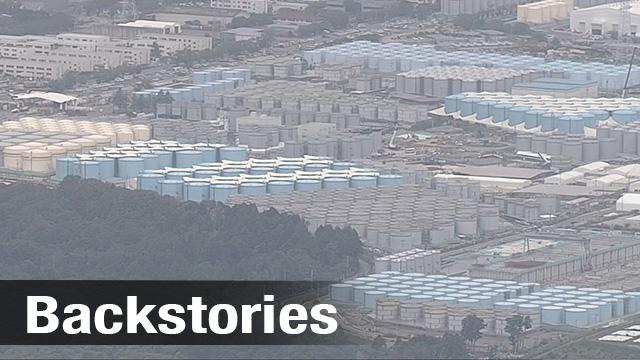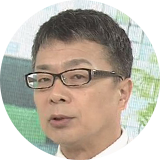Doing away with tritium-tainted water is essential
Every day, more than 100 tons of radioactive water builds up. Despite various measures taken since the 2011 accident at Fukushima Daiichi, groundwater continues to enter the reactor buildings, mixing with water which is being used to cool the reactors.
The Tokyo Electric Power Company uses a system called ALPS to treat the water. Officials have been saying that the system's high-performance filters can get rid of most radioactive substances, except tritium.
TEPCO is not allowed to dispose of that water because its tritium levels surpass the limit set by the government.
That's why the utility is storing 920,000 tons of the water in more than 800 tanks. The water is expected to increase by up to about 100,000 tons a year. The government and the firm say that in a matter of years, Fukushima Daiichi will run out of space for tanks.
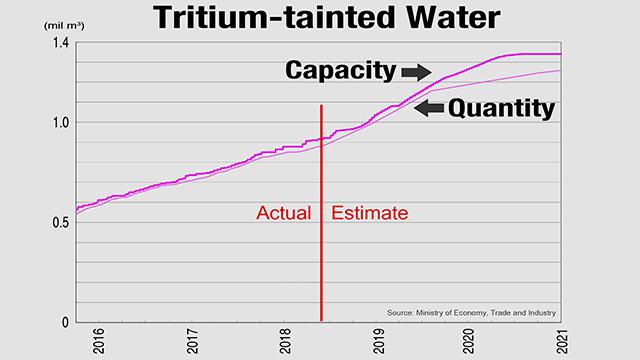
A government panel of experts has been discussing what to do with the water. The experts concluded that the technology for separating tritium cannot be put into practical use yet. They instead put several options on the table such as:
1) Diluting and releasing the water into the sea
2) Heating and evaporating the water
3) Burying the water deep underground
A report later compiled by the panel said releasing the water into the sea will make the most sense. Experts say this is the cheapest and quickest way among all the options. The question is, is it safe?
Tritium exists in the atmosphere. The government, TEPCO and the Nuclear Regulation Authority say tritium emits a weaker form of radiation than other radioactive substances. They say that even if tritium enters the human body, it will be incorporated into water and quickly released outside. Officials say therefore, tritium is likely to pose few health risks if its concentration is low.
In the past, nuclear power plants across Japan actually released water containing tritium after confirming its readings were below the limit.
NRA Chairman Toyoshi Fuketa has been calling on the government and TEPCO to make a quick decision, saying releasing the water into the sea after its tritium level falls below the limit is the only viable option. He thinks the approval process for the proposal is unlikely to take long, so it will have limited impact on the work to scrap the reactors.
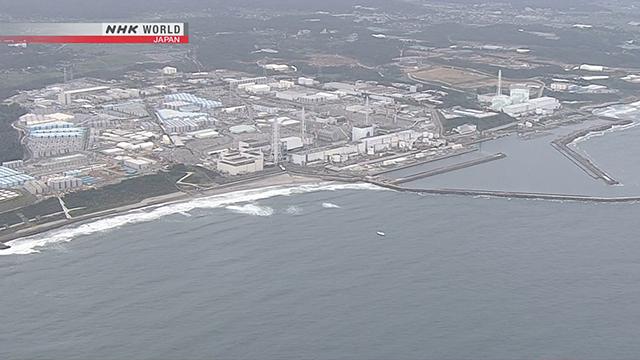
Mounting distrust among fisheries
After the expert panel compiled its report, the government held public hearings to make a final decision. At a hearing held in the town of Tomioka in Fukushima Prefecture on August 30th, the proposal came under fire mainly from people in the fishing industry.
The head of the Fukushima Prefectural Federation of Fisheries Cooperative Associations said the proposed move will be a devastating blow to the local fishing industry. He said its past efforts will go to waste, and it will deprive the industry of its motivation for rebuilding businesses.
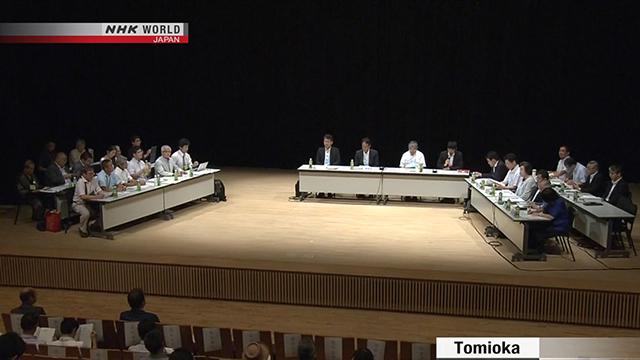
Fishermen in Fukushima suspended their operations after radioactive materials exceeding the government-set limits were detected in seafood caught off the prefecture following the 2011 accident. But in recent years, no fish from the area have been found to be highly radioactive. Now, fishermen can catch and ship most kinds of fish.
However, some consumers still hesitate to eat marine products from Fukushima. Fish landings are still about one-tenth of levels before the accident. Local fisheries fear that if TEPCO releases the water into the ocean, they will have to delay their plans to resume operations at full capacity and struggle again to make ends meet -- even if the water is deemed safe.
The underlying problem is distrust towards the government and TEPCO. There have been numerous instances in which TEPCO withheld the fact that tainted water had leaked into the sea. Locals saw them as acts of betrayal. They fear that once TEPCO begins dumping the water into the sea, consumers may refrain from purchasing fishery products from Fukushima Prefecture even further.
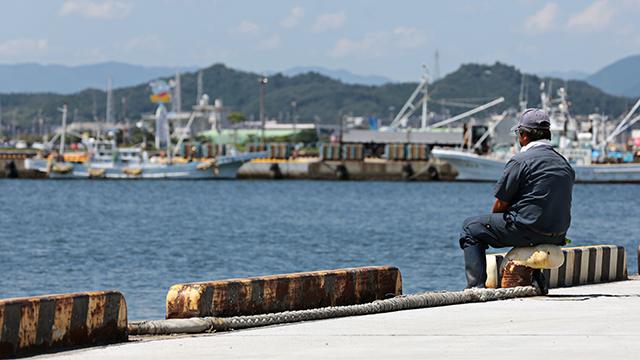
Public distrust further deepened during the hearings. It came to light that the water stored in some of the tanks contains levels of radioactive substances, such as iodine that exceed the limit. This contradicts the explanation given by the government and TEPCO -- that the water treatment system can reduce all radioactive substances to a level below the limit, except for tritium.
My understanding was that tritium was the only radioactive substance in the tanks that exceeds the government-set limits. I was not the only one who was confused. Other participants also expressed concerns that TEPCO may have been concealing the facts.
TEPCO officials explained that levels of some radioactive substances could exceed the limits if the water treatment filters are used continuously. They said that's not a problem, adding that the goal is to reduce the risk of radiation exposure, and that they have been making the data public on their website.
After hearing this, I checked TEPCO's website once again. There, I found the iodine levels, but they were buried in a massive amount of data, making it very difficult to find. TEPCO officials didn't seem eager to provide a full explanation of what has happened so far.
But TEPCO's claim that this isn't a problem differs with the public's view. Its attitude is worsening the problem.
TEPCO officials tend to make decisions based on technical considerations, which often fail to sufficiently acknowledge the concerns of the locals. The officials also appear reluctant to release information that is inconvenient for them. Unless they change their mindset, they will not be able to regain the public's trust.
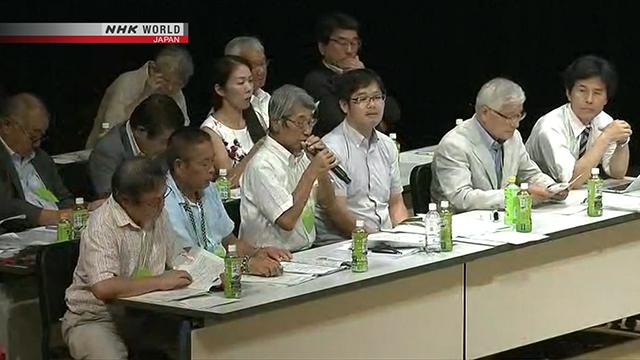
Steps TEPCO must take to regain trust
First and foremost, the government and TEPCO must provide thorough explanations and responses to the questions and opinions expressed in the hearings. They need to clarify why they didn't proactively explain the level of radioactive substances and provide their exact levels and how they will deal with them.
In addition, the government should hold public hearings at various other locations and communicate more with the public. The latest round of public hearings was held only in Fukushima and Tokyo and this didn't seem sufficient to regain public support.
Decommissioning of the crippled Fukushima Daiichi nuclear plant is a prerequisite for the reconstruction of areas devastated by the nuclear disaster. To this end, treatment of contaminated water is a must, and it needs be done swiftly. However, there will not be progress, no matter which method is taken, without the consent of the people affected by the nuclear disaster.
TEPCO and government officials must offer truthful updates as soon as they happen. While this sounds obvious, it's the only way to regain people's trust and resolve the problem of the accumulation of tainted water.
